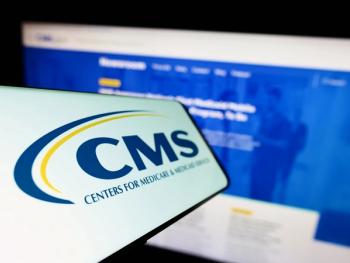
FDA Lifts Safety Restrictions on CAR T Therapies After Reviewing Real-World Data
FDA officials have determined that information regarding the risks for six CAR T-cell therapies can be communicated through product labeling, which includes a boxed warning for the risks of cytokine release syndrome and neurological toxicities.
The FDA has eliminated special safety restrictions for six CAR T-cell immunotherapies, citing growing evidence that the treatments can be safely managed without additional regulatory oversight. The decision could broaden access to these gene-based cancer therapies while easing administrative burdens on hospitals and providers.
The June 27
- Abecma (idecabtagene vicleucel)
- Breyanzi (lisocabtagene maraleucel)
- Carvykti (ciltacabtagene autoleucel)
- Kymriah (tisagenlecleucel)
- Tecartus (brexucabtagene autoleucel)
- Yescarta (axicabtagene ciloleucel).
“Eliminating the REMS that is no longer needed also expedites the delivery of potentially curative treatments to patients and reduces burden on providers,” Vinay Prasad, M.D., M.PH., chief medical and scientific officer at the FDA’s Center for Biologics Evaluation and Research, said in the news release.
A REMS is a safety program the agency can impose on high-risk drugs to ensure their benefits outweigh their risks. For CAR T therapies, REMS previously required hospitals to be specially certified and to maintain on-site supplies of tocilizumab, an immune-suppressing drug used to treat cytokine release syndrome (CRS), a potentially severe inflammatory reaction triggered by the therapy.
CAR T-cell therapy involves extracting a patient's T cells, genetically modifying them to better recognize and attack cancer cells, and then infusing them back into the patient. The process has shown remarkable results in patients with blood cancers who have exhausted other treatment options, with some achieving complete remission.
Since the FDA approved Kymriah as the first CAR T to be commercially available in the United States in 2017, clinicians have become increasingly familiar with managing serious side effects associated with these medications, including CRS and immune effector cell–associated neurotoxicity syndrome (ICANS).
A
The elimination of REMS requirements means hospitals no longer need special certification to administer these therapies, potentially allowing more cancer centers to offer CAR T treatments. The FDA said that the decision to remove REMS was based on accumulated real-world experience showing that safety information can be adequately conveyed through standard product labeling rather than requiring specialized programs.
“Physicians and institutions now have greater experience identifying and managing toxicities with the currently approved CAR T products,” Richard Pazdur, M.D., FDA Oncology Center of Excellence Director, said in the news release.
The risks associated with CAR T therapies will continue to be communicated through boxed warnings and medication guides included in product labeling. Healthcare providers must still report adverse events, and manufacturers are required to conduct postmarketing safety studies, including 15-year patient follow-up, the FDA said.
The move comes as CAR T therapies continue expanding into earlier lines of treatment and new cancer types. Several of these therapies have shown the ability to put patients into long-term remission.
Newsletter
Get the latest industry news, event updates, and more from Managed healthcare Executive.























